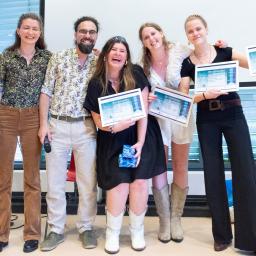As part of the LDE Global initiative, IHS joined forces with Nuvoni Centre for Research, the Circular Community Foundation and Leiden and Delft Universities to address urgent urban challenges through transdisciplinary collaboration.
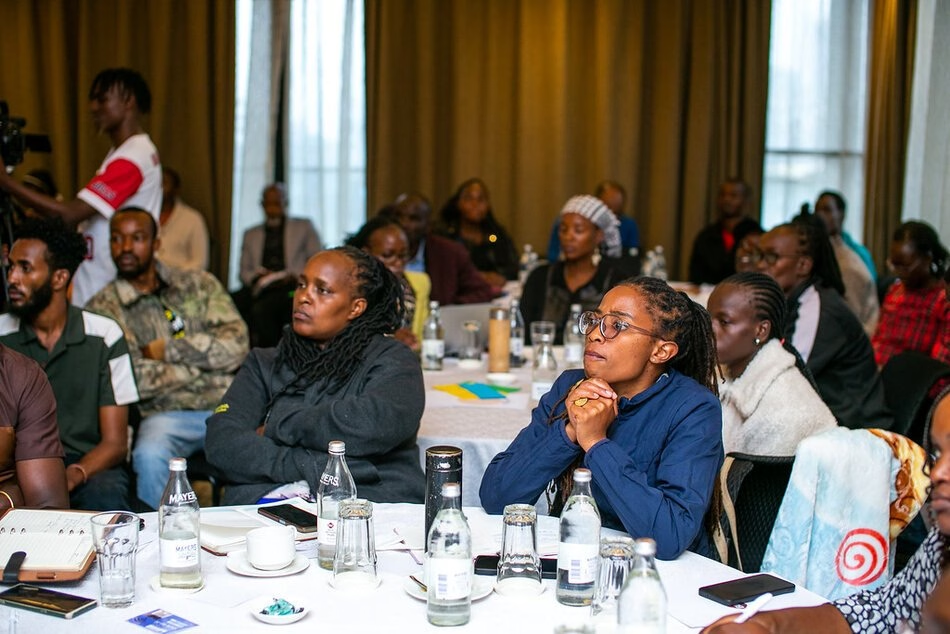
© Nuvoni Research
Within this framework, Jan Fransen, Lead Specialist in Urban Economic Development and Resilience at IHS worked alongside local partners in Nairobi to explore how circular and regenerative resource systems can contribute to the restoration and climate adaptability of riparian river landscapes. The project focused on four community-led initiatives in the Nairobi River corridor, showing how grassroots innovation can transform degraded urban environments into vibrant, sustainable spaces.
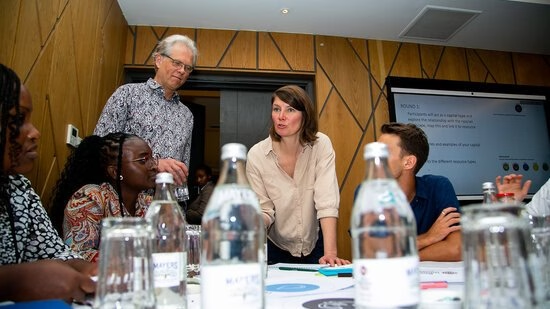
© Nuvoni Research
From waste to wealth: Multistakeholder workshop report
On 28 March 2025, a diverse group of community members, youth leaders, environmental organisations, researchers, and policymakers came together in Nairobi to explore multiple value creation in the riparian river landscape. The workshop included mapping the environmental, social, cultural, and economic values of circular and regenerative resource systems, showcasing innovative community initiatives tackling waste, food security, arts, and environmental restoration and co-creating interventions aimed at enhancing the regenerative capacity of the Nairobi River’s social-ecological systems
This comprehensive report offers a clear and accessible summary of the discussions, maps, and strategies co-developed during the session, providing practical insights for anyone working on urban river regeneration.
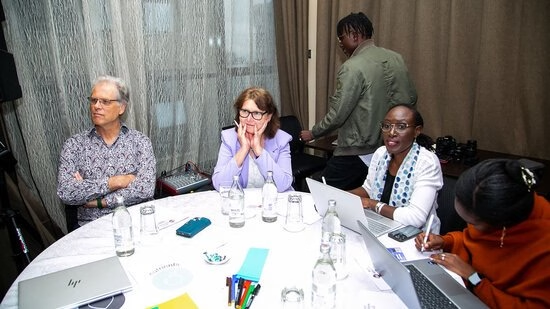
© Nuvoni Research
Stories of change: Documentary on Nairobi’s river champions
This short film showcases four youth-led initiatives: Lackysummer Environmental and Waste Management Organisation, Tempo Arts Centre, Youthprinua, and Easy Urban Green Growers, working along the Nairobi River to tackle climate-related challenges such as floods and droughts. By developing circular systems for water, energy, and materials, these communities are increasing self-sufficiency, restoring degraded landscapes, and enhancing climate resilience. The documentary captures how building on grassroots action and co-creating local solutions can transform vulnerable riverside areas into thriving, sustainable spaces.
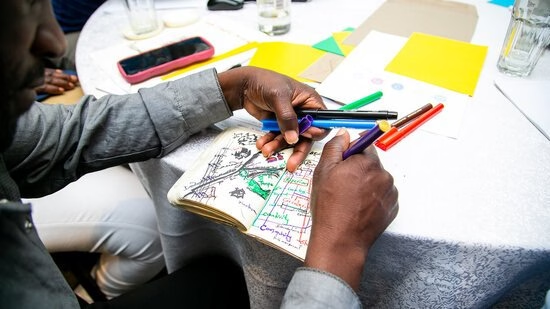
© Nuvoni Research
Measuring impact: Circular Value Flower (CVF) Analysis
How do we measure the true value of circular initiatives beyond just economic gain? As part of the project, the Circular Value Flower method was applied to analyse the four Nairobi River initiatives. Originally designed to help communities collectively close resource cycles for materials, energy, water, and nutrients at neighbourhood scale, the method also reveals the social, ecological, aesthetic, cultural, and economic values generated by such initiatives. In the Nairobi context, it provided a clear framework to understand how grassroots circular projects not only improve resource management but also strengthen community resilience, environmental health, and local livelihoods.
Through these collaborations, the project demonstrates how local innovation, youth leadership, and circular practices can be powerful catalysts for ecological regeneration and social resilience in urban environments worldwide.


